LaTeX templates and examples — Conference Paper
Recent
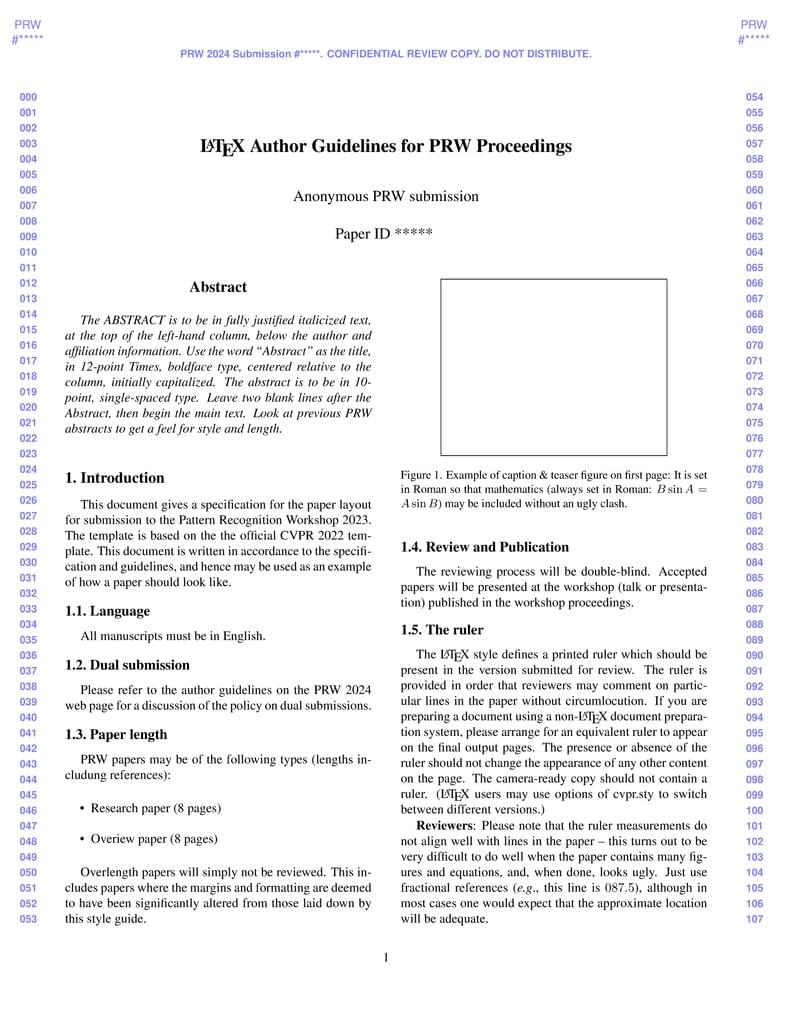
Template and Guidelines for the PRW (Pattern Recognition Workshop) Proceedings. Maintained by Uni.-Prof. Peter M. Roth. University of Veterinary Medicine, Vienna
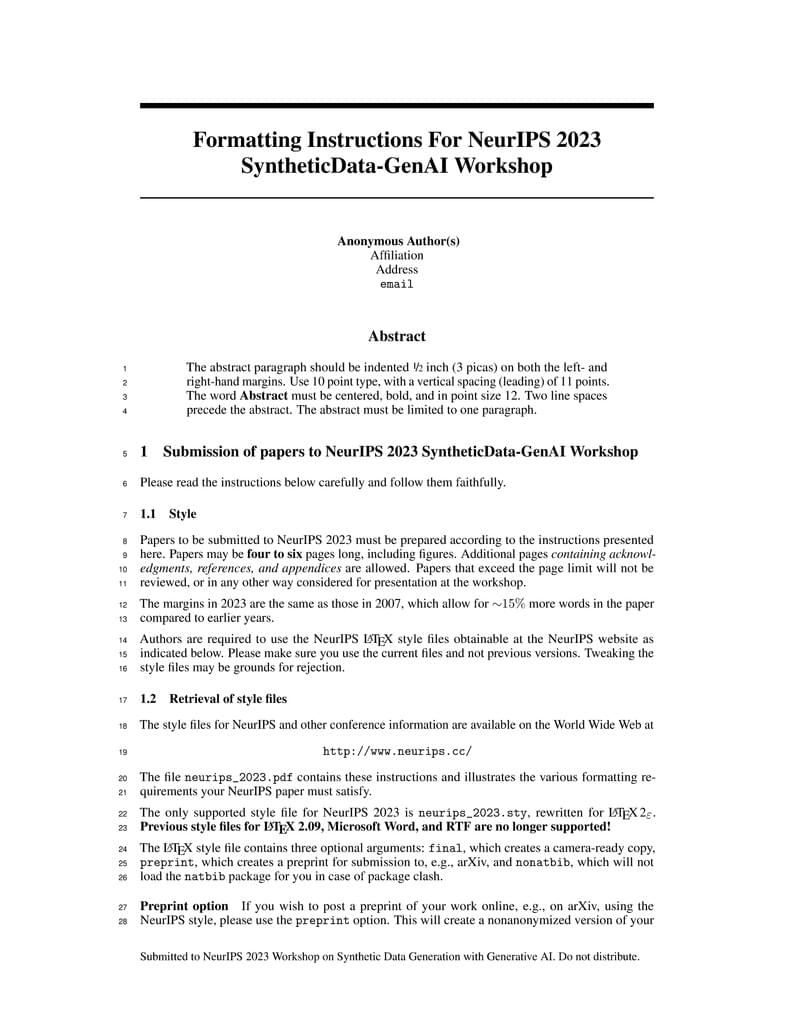
LaTeX template for NeurIPS 2023 Workshop on Synthetic Data Generation with Generative AI
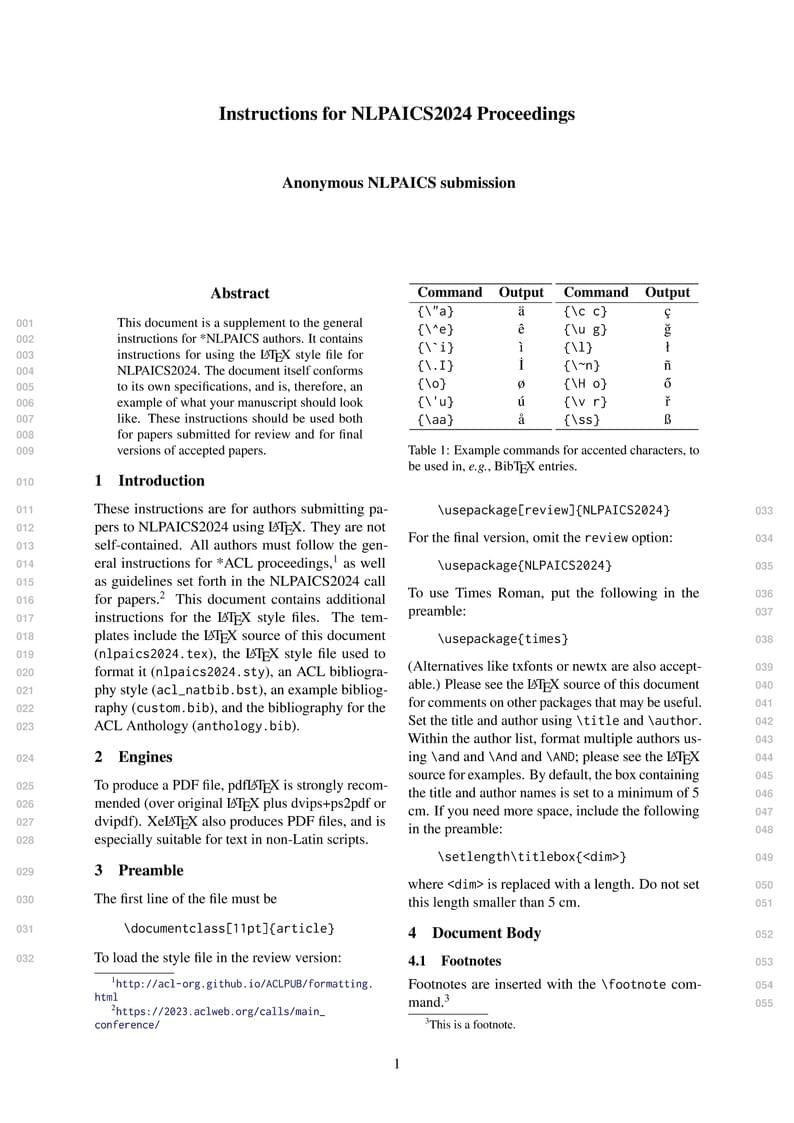
This is the Latex Overleaf template for the First International Conference on Natural Language Processing and Artificial Intelligence for Cyber Security (NLPAICS 2024) in Lancaster University, UK. July 29 - 30 2024
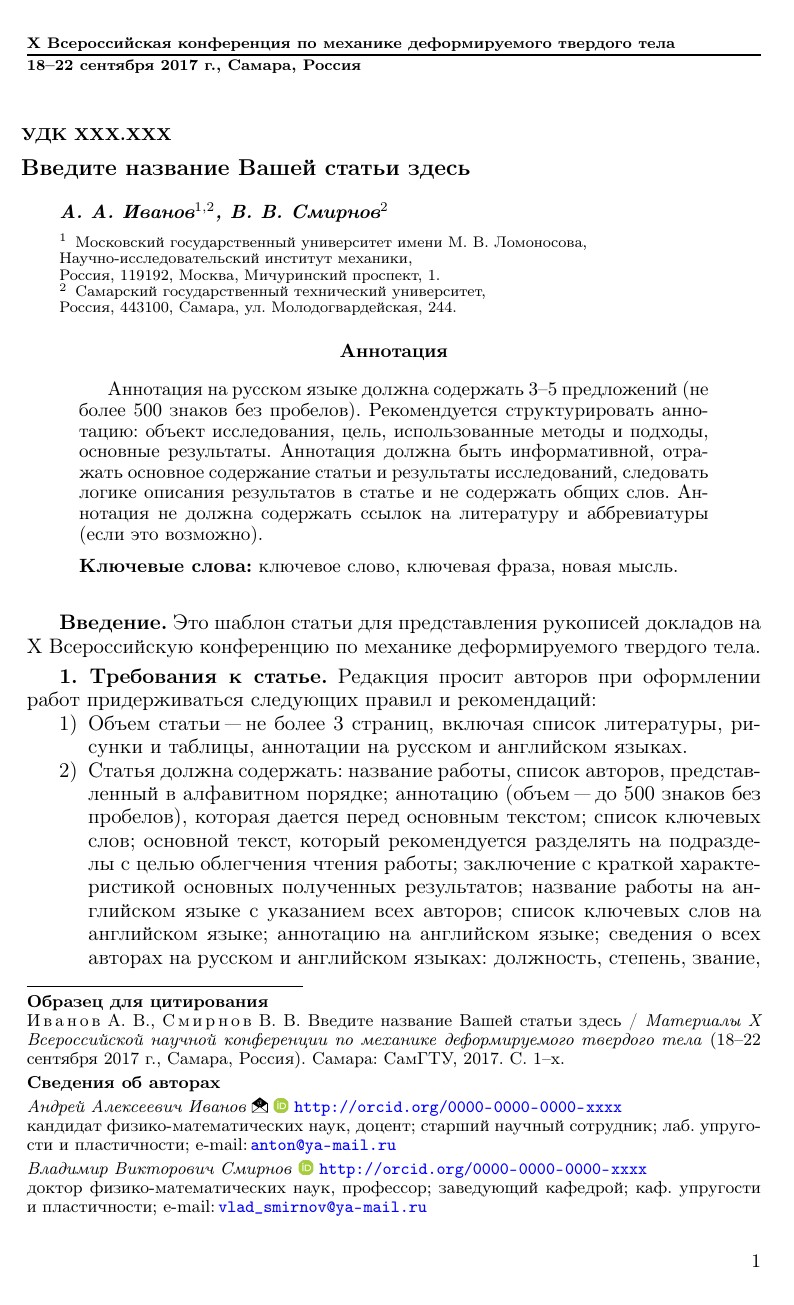
Это шаблон для X Всероссийской конференции по механике деформируемого твердого тела (18-22 сентября 2017, Самара, Россия). Просто создайте проект прямо в Overleaf и подготовьте рукопись к публикации online. Вы также можете скачать шаблон на локальный компьютер и работать offline. Шаблон содержит общую структуру статьи (доклада) и общие рекомендации, которые помогут при оформлении публикации. При регистрации доклада на конференцию может быть использована share-ссылка на проект из Overleaf.
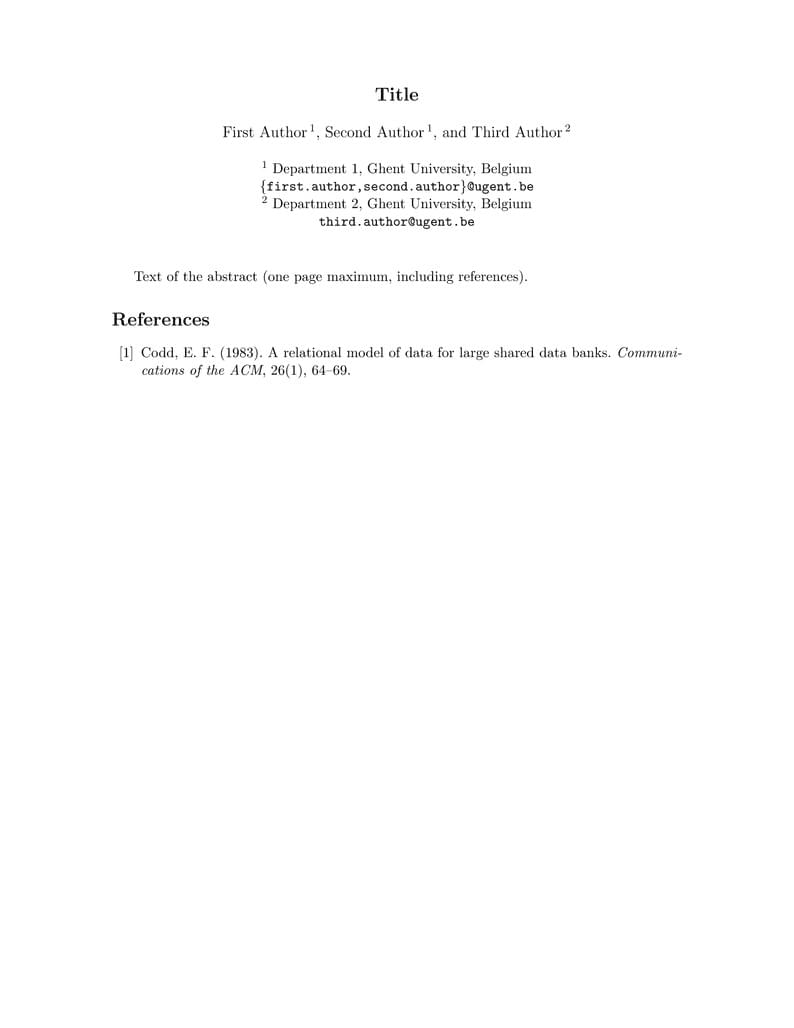
Simple abstract template for the DBDBD 2023 workshop.
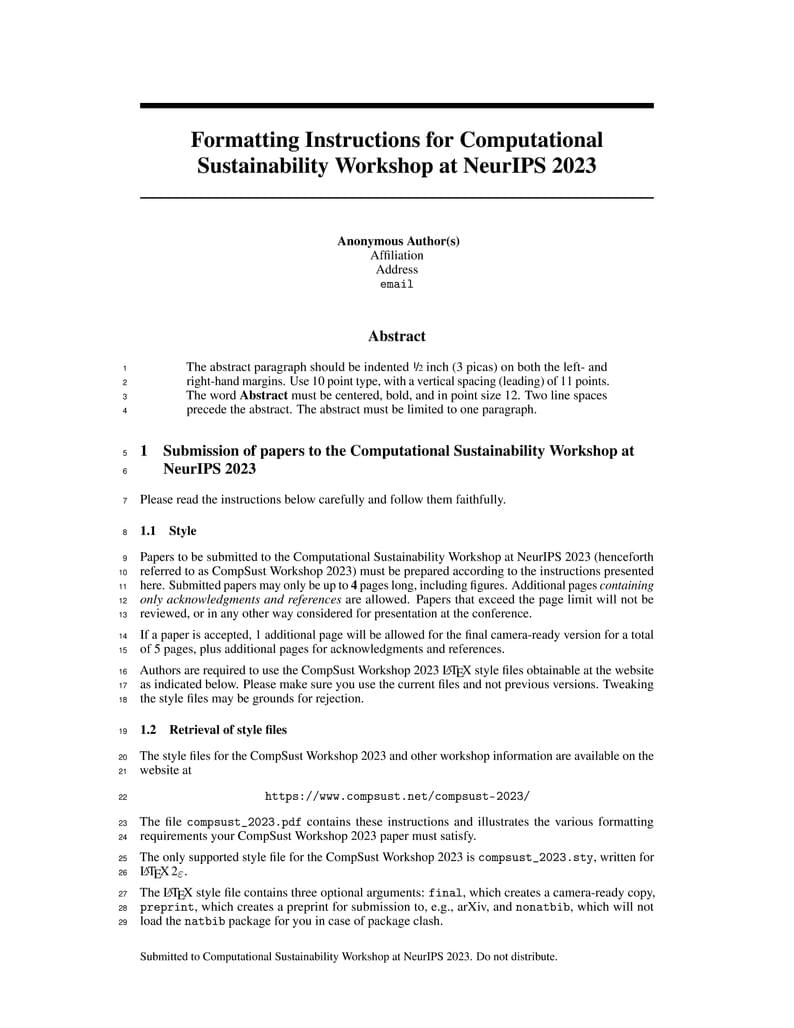
Workshop template for the CompSust NeurIPS 2023 workshop based on the NeurIPS style file.
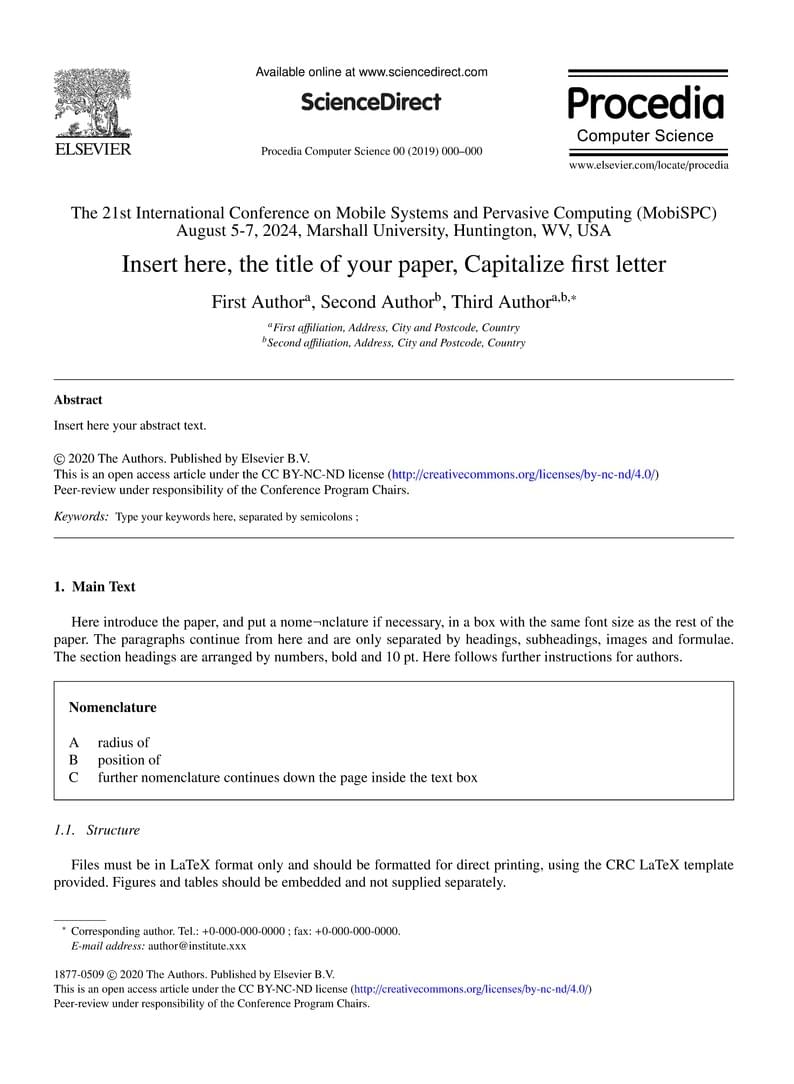
Template for the conference MOBISPC 2024 and related workshops
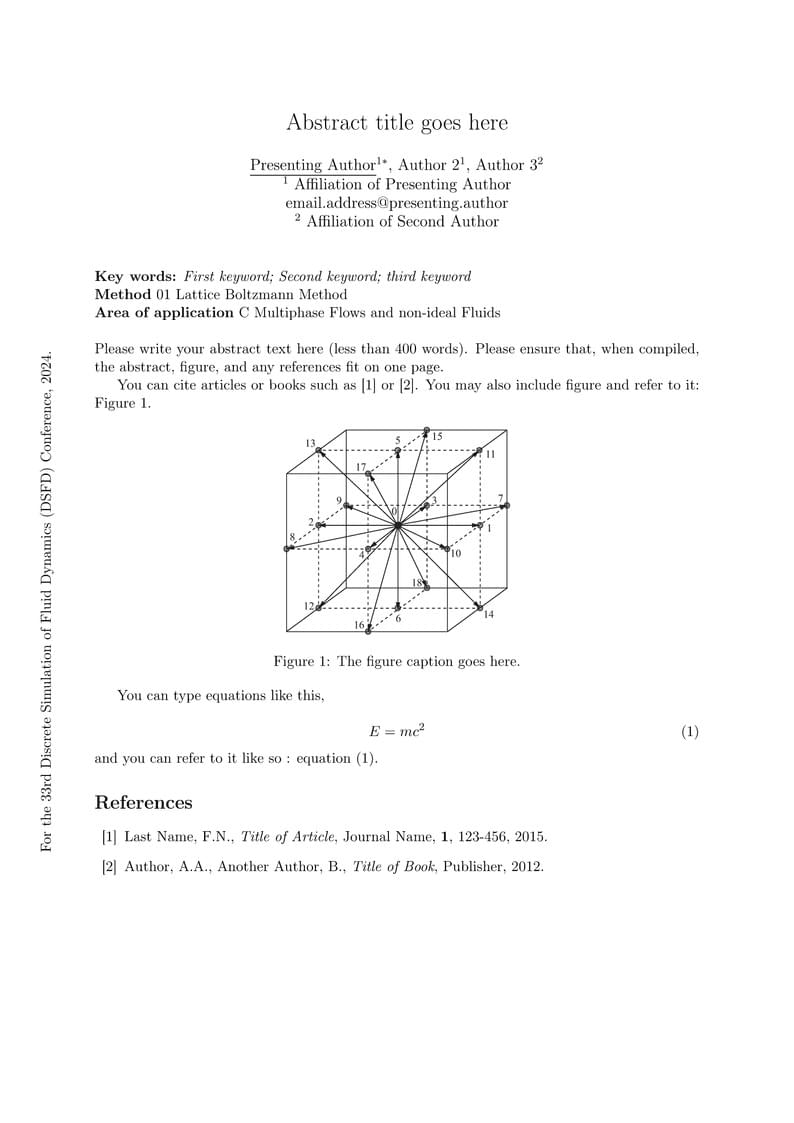
Latex template for abstract submission to the 33rd Discrete Simulation of Fluid Dynamics (DSFD) Conference, 2024. Adapted from previous conference templates, e,g, https://cbe.unm.edu/dsfd-conference/abstract_template.zip
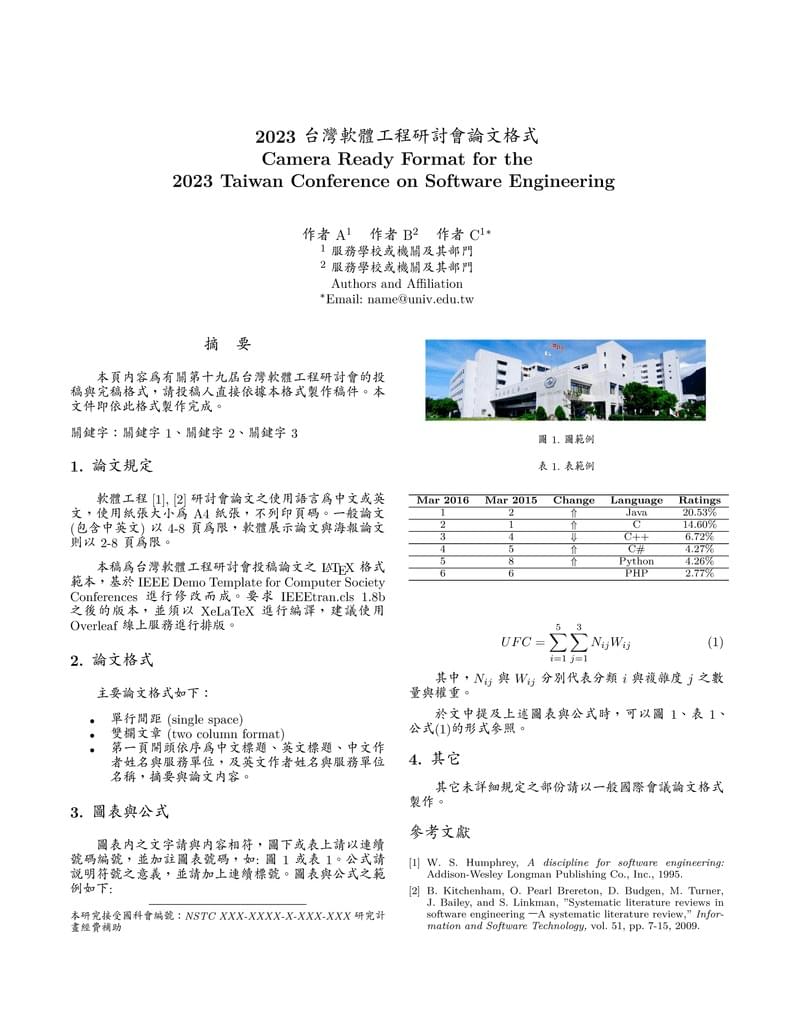
TCSE refers to Taiwan Conference of Software Engineering, is a conference in Taiwan. The aim of the conference is to promote the communication of software engineering research.
\begin
Discover why over 25 million people worldwide trust Overleaf with their work.